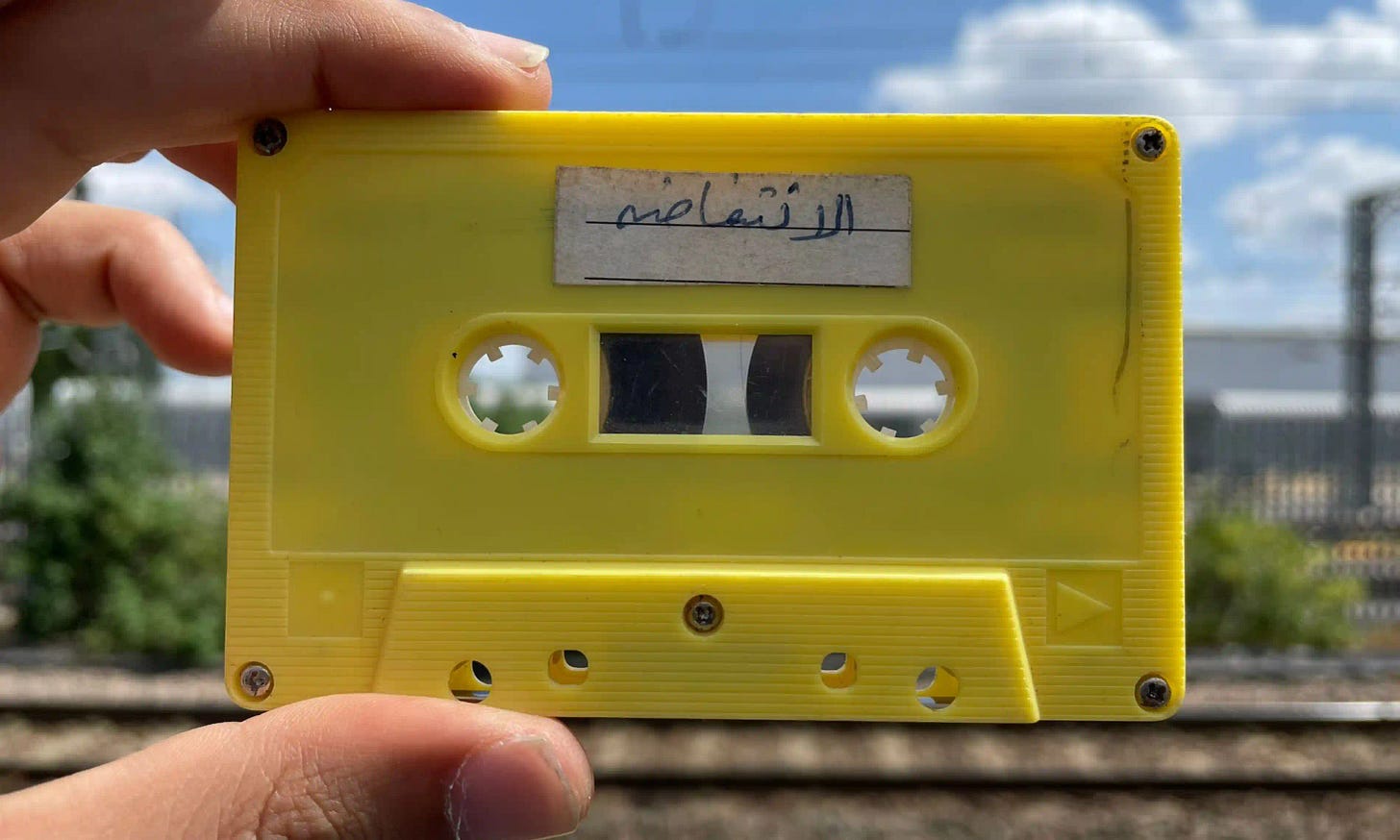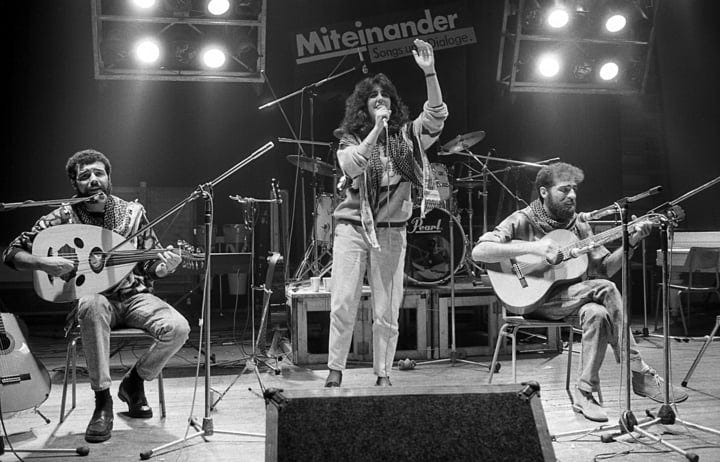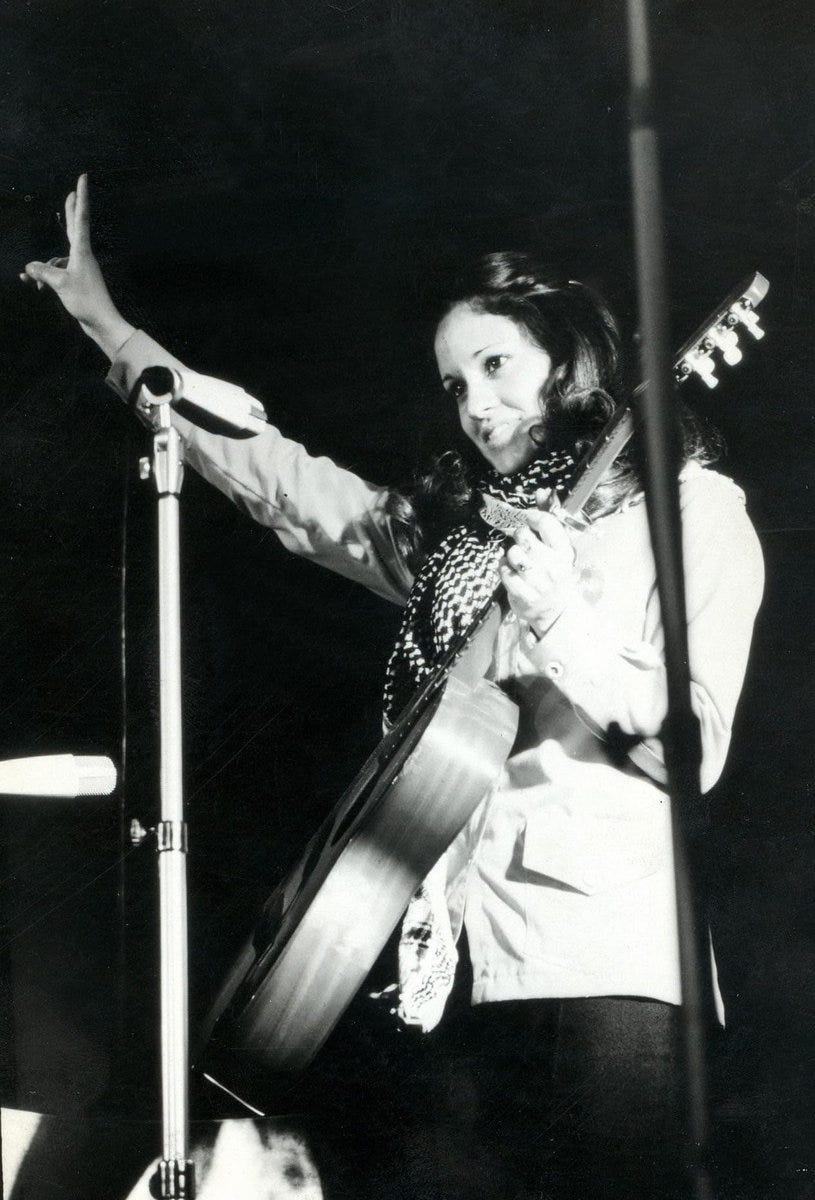Echoes of Resistance: The Majazz Project and the Forgotten Sounds of Palestine
During the COVID-19 lockdown in 2020, Mo'min Swaitat, a man caught between worlds, found himself stranded in Palestine while his wife and daughter were thousands of miles away in the UK. As the world ground to a halt, Mo'min sought solace and inspiration in the familiar streets of Jenin, his hometown in the heart of the West Bank.
While the world stood at a standstill, he stumbled upon a forgotten relic: Tariq Cassettes, a modest music shop steeped in the nostalgia of his youth as it was popular when he grew up.
It was here, amidst dusty shelves and faded album covers, that he unearthed "Intifada" by Riad Awwad. This album, the first to emerge during the tumultuous days of the First Intifada, had been lost after about 3,000 copies of it were confiscated by the Israeli military. These songs had a life before they were confiscated and had echoed through local shops, homes, and cafes, becoming the anthems of a movement. Yet, this very popularity drew the ire of those in power. Awwad was detained for several months without trial and tortured in custody. Upon release, still fueled by his passion for music, he started a music school for Palestinian children. Due to his untimely death in 2005, he could not see the work done to uncover his music. However, his impact on the movement for Palestinian liberation is immeasurable.
Inspired, Mo'min embarked on a mission to resurrect the forgotten sounds of his homeland. Thus, "the Majazz Project" was born — a labor of love and a testament to the enduring spirit of Palestinian music. Swaitat describes it as a Palestinian-led record label and research platform. Mo'min digitized thousands of tracks through tireless effort, breathing new life into forgotten rhythms and lost melodies.
But his journey didn't end there. Delving deeper into the archives, Mo'min unearthed hidden gems from field recordings of Bedouin weddings to synth-heavy 80s funk and jazz.
Born amidst the First Intifada and raised during the Second, Mo'min immersed himself in a world of sounds he grew up with. Yet, as he pieced together the fragments of a lost legacy, Mo'min realized that many of the tracks he uncovered needed to be traced to their origins for various reasons.
One group called Al Fajer was established in Kuwait and known for its acoustic instruments, never utilizing electronic equipment during its performances. They dedicated much of their art to the Palestinian struggle and often performed related music. Their debut album, recorded during the first Intifada, never got a proper release because of the Iraqi invasion of Kuwait in 1990.
Another song released through the Majazz Project was "The Urgent Call of Palestine." The album, recorded by teenage Zeinab Shaath in the early 1970s, is the first English language music to speak about the Palestinian struggle. The song was put to film in 1972 and includes a short interview with poet Kamal Nasser, who later became a spokesperson for the Palestinian Liberation Organization. The film was confiscated by the Israeli army and was uncovered by filmmaker Rona Sela in 2017. Majazz Project reissued the project this January.
Mo'min Swaitat's journey is not just a story of rediscovering lost melodies but a testament to the resilience of a people and their culture in the face of adversity. As we reflect on his remarkable endeavor with the Majazz Project, I want to encourage my readers to support this project by buying from them directly on Bandcamp. By sharing the stories of these artists, we can contribute to preserving and celebrating Palestinian culture.







